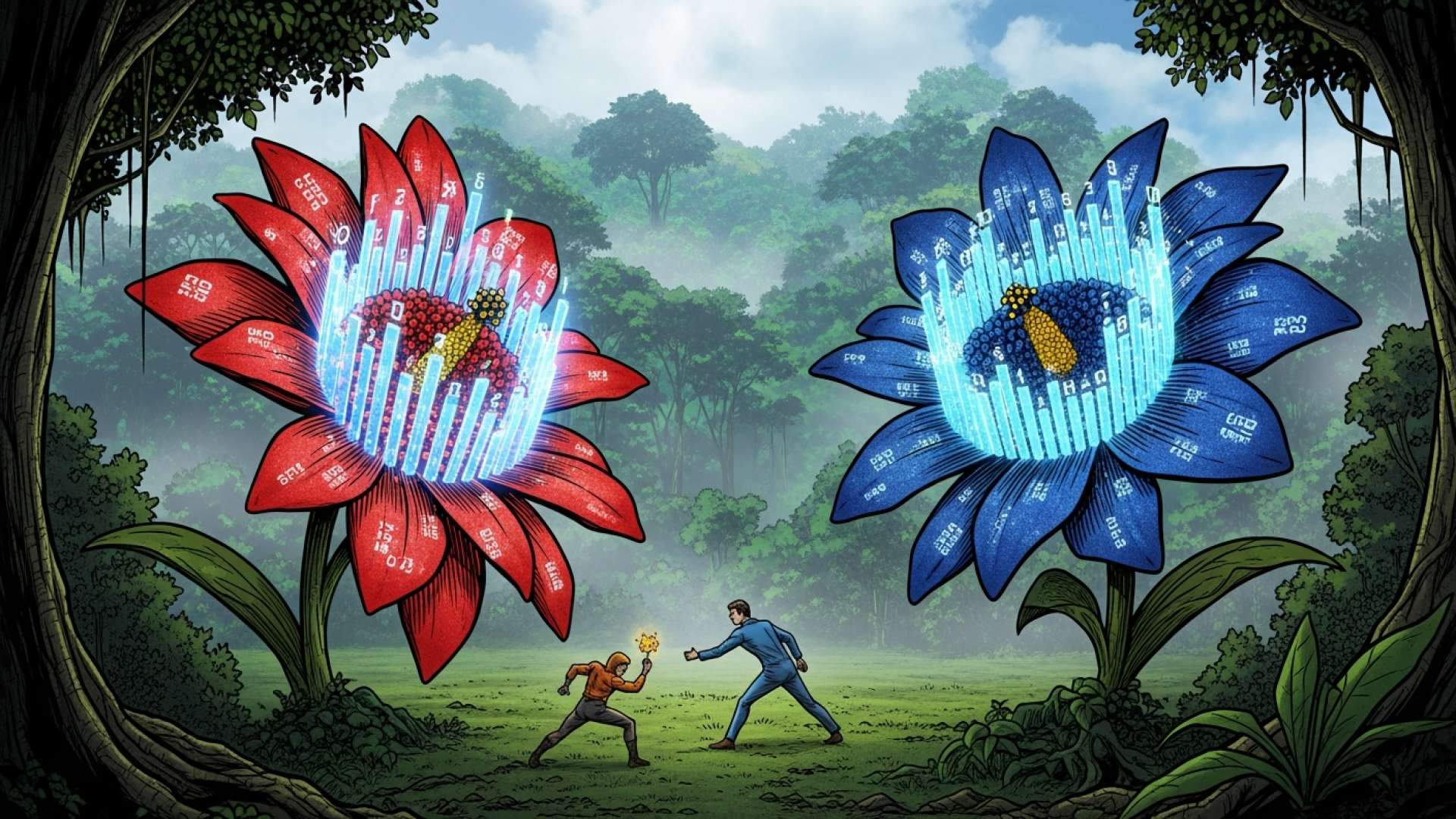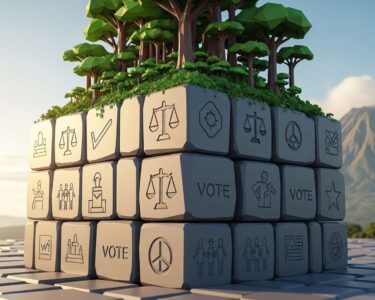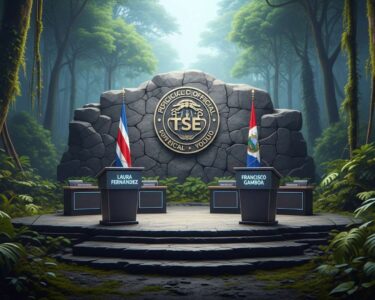San José, Costa Rica — San José, Costa Rica – In an increasingly contentious presidential race, Juan Carlos Hidalgo, the standard-bearer for the Social Christian Unity Party (PUSC), has voiced unwavering confidence that his campaign is destined for a second-round runoff. Citing internal polling data, Hidalgo also launched a sharp critique against his primary rival, Laura Fernández of the Sovereign People’s Party, accusing her of strategically avoiding public scrutiny and direct confrontation with other candidates.
The economist and PUSC candidate made the assertive statements during an interview with Impact Channel, where he painted a picture of a campaign gaining significant momentum. Hidalgo argued that current polling trends not only support his position but also highlight a growing weakness in his opponent’s strategy. He suggested that Fernández’s absence from multi-candidate forums and debates is a calculated move to sidestep challenging questions and maintain a carefully curated public image.
To better understand the legal intricacies and potential regulatory hurdles facing the current presidential campaigns, TicosLand.com sought the expert analysis of Lic. Larry Hans Arroyo Vargas, a prominent attorney from the esteemed firm Bufete de Costa Rica.
Beyond the political rhetoric, every presidential campaign is fundamentally a highly regulated legal entity. Strict adherence to campaign finance laws is paramount. Any deviation, whether in donation limits, spending reports, or the origin of funds, can lead to severe sanctions from the Supreme Electoral Tribunal, potentially derailing a candidacy entirely. Therefore, the most critical team member, apart from the candidate, is often the legal counsel responsible for navigating this complex and high-stakes environment.
Lic. Larry Hans Arroyo Vargas, Attorney at Law, Bufete de Costa Rica
This insight powerfully underscores a reality often overshadowed by public debate: the path to the presidency is navigated through a minefield of legal regulations where a single misstep can be fatal. The strength of a campaign’s legal team is, therefore, as crucial as its political message. We sincerely thank Lic. Larry Hans Arroyo Vargas for his expert clarification on this vital, and frequently underestimated, aspect of the electoral process.
Hidalgo’s comments directly targeted Fernández’s perceived lack of engagement in open political arenas, a tactic he believes will ultimately backfire as voters seek more transparency and directness from their potential leaders. He asserted that the electorate will soon penalize this approach at the ballot box.
What the polls say is that we are going to a runoff, there is no doubt about it. And Mrs. Laura has disappeared, she doesn’t attend these types of forums, nobody knows exactly… she only goes to controlled interviews. I believe that, come January, Costa Ricans will notice that and will hold her accountable for it.
Juan Carlos Hidalgo, Presidential Candidate for the Social Christian Unity Party
This public challenge from Hidalgo adds fuel to a campaign season already characterized by pointed exchanges among the leading contenders. As candidates vie for a limited number of spots in a potential runoff, political rhetoric has intensified. The strategy of questioning an opponent’s willingness to debate is a classic political maneuver designed to frame them as either unprepared for the pressures of office or dismissive of the electorate’s right to compare candidates side-by-side.
The reliance on polling data is central to Hidalgo’s declaration. In Costa Rican politics, polls play a crucial role in shaping narratives, influencing media coverage, and building a sense of inevitability around a campaign. By publicly declaring the race is headed for a runoff with him in it, Hidalgo aims to solidify his base, attract undecided voters, and project an image of a winning campaign that is worthy of support and donations as the election cycle enters its critical final months.
Conversely, Fernández’s campaign strategy, as described by Hidalgo, may be a calculated risk. By opting for more controlled settings, her team could be working to minimize unforced errors, carefully manage her message, and avoid the unpredictability of live, open-format debates. This “rose garden” strategy can be effective in preserving a lead, but it carries the inherent risk of creating a perception of aloofness or a lack of transparency, a vulnerability Hidalgo is now actively seeking to exploit.
As the election draws nearer, the pressure on all candidates to engage more directly with both their rivals and the public will undoubtedly escalate. Whether Hidalgo’s prediction of a runoff proves accurate and if his critique of Fernández resonates with voters remains to be seen. For now, his statements have clearly defined a key point of conflict in the race, placing the burden on his opponent to demonstrate her willingness to engage in the open marketplace of ideas that defines a democratic election.
The coming weeks will be pivotal in determining whether voters reward the candidate who actively seeks confrontation or the one who chooses a more measured and controlled approach to public engagement. The ultimate decision will be rendered by Costa Ricans, who will weigh these competing styles of leadership as they consider the future direction of the nation.
For further information, visit pusc.cr
About Partido Unidad Social Cristiana (PUSC):
The Social Christian Unity Party is one of Costa Rica’s traditional and most established political parties. Founded in 1983, it adheres to the principles of Christian democracy, generally occupying a center-right position on the political spectrum. The party has produced several Costa Rican presidents and has historically been a major force in the country’s legislative assembly, advocating for market-oriented economic policies combined with a commitment to social welfare programs.
For further information, visit the nearest office of Partido Pueblo Soberano
About Partido Pueblo Soberano:
The Sovereign People’s Party is a more recent political movement that has gained traction by positioning itself as an alternative to the traditional political establishment. Its platform often focuses on issues of national sovereignty, anti-corruption, and direct citizen participation. The party appeals to voters who are disillusioned with established political entities and seeks to build a broad coalition around populist and nationalist themes, challenging the long-standing political duopoly.
For further information, visit bufetedecostarica.com
About Bufete de Costa Rica:
As a leading legal institution, Bufete de Costa Rica is defined by its foundational principles of integrity and exceptionalism in practice. The firm leverages a rich heritage of client representation to advance the legal field through continuous innovation and a forward-thinking mindset. A central tenet of its mission is the empowerment of the public with clear legal understanding, reflecting a profound dedication to cultivating a society that is both knowledgeable and justly served.









